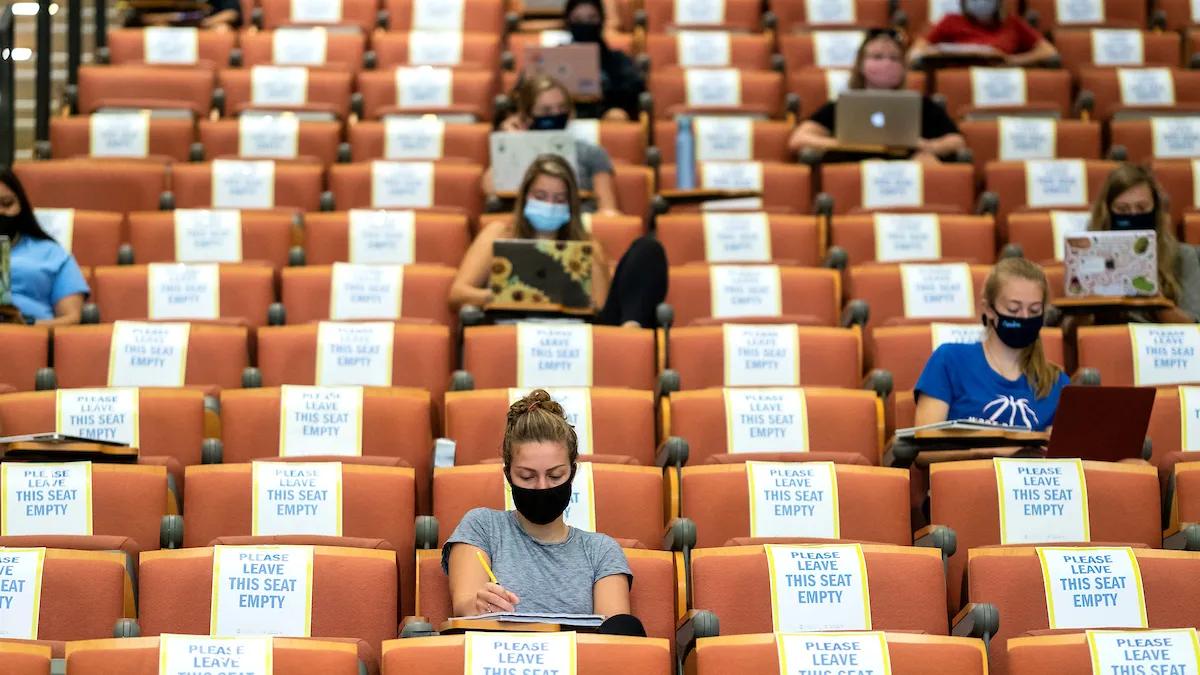Dive Brief:
-
Only a quarter of colleges that enroll more than 5,000 undergraduates and are offering in-person classes are testing for the coronavirus on a mass scale or randomly screening students, a new analysis finds.
-
NPR, working with the College Crisis Initiative at Davidson College, which tracks institutional responses to the pandemic, examined data on more than 1,400 schools and unearthed the testing inconsistencies.
-
Virus screening has been a linchpin of colleges' campus reopening plans, some of which have unraveled amid rising case counts.
Dive Insight:
Institutions that brought students back to campus this fall have wildly varying test strategies.
Some only screened students upon their arrival or if they had symptoms of COVID-19. Others have been more aggressive, such as the University of Illinois at Urbana-Champaign, which tested students and faculty twice a week but still saw a spike in verified cases. One recent study suggested institutions would need to test every two days to contain the virus.
Recurring testing is important, health experts have said, because it enables colleges to find asymptomatic students and employees who are spreading the virus.
But more than two-thirds of colleges NPR examined that had in-person classes either lacked a "clear testing plan," according to the media outlet, or were mainly testing students who felt ill or had been in contact with someone who tested positive. Only 6% of the schools analyzed were regularly screening all students, with most falling back on testing only symptomatic students, NPR found.
Failure to monitor for the virus has consequences. Recent research linked an uptick in case numbers to colleges that reopened campuses this fall.
And NPR found that two-thirds of full-time undergraduates attending college in counties that are coronavirus hotspots — meaning they have 25 or more average daily cases per 100,000 people — aren't on a campus that requires regular or surveillance testing.
While cost has been a barrier to widespread testing, so too has shifting public health guidance.
The Centers for Disease Control and Prevention (CDC) initially did not recommend testing all students and employees as they came back to campus. But the CDC recently reversed its stance, clarifying that reentry testing could “prevent or reduce” transmission of the virus. Testing random, asymptomatic people on campus could also help detect outbreaks sooner, the CDC said.













